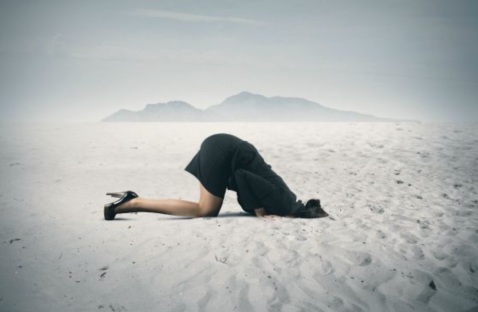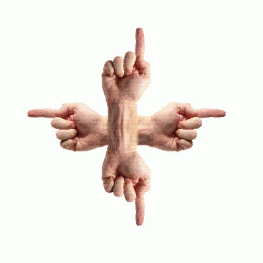
Toronto gets a lot of snow. No one freaks out about it because there are machines and people to get rid of it, and an attitude that it’s hardly a problem worth hyperventilating over.
Many problems are like that. When we prepare for them and get used to them, they’re not problems anymore. They’re merely the way it is. We intuitively know this, although when new problems arise we sometimes react poorly, and we don’t like the accompanying feelings.
What about an individual? Is there much worse we can say about you and your work? “You are unprepared.” But the word “unprepared” really means two things. There is the unprepared of the quiz at school, of forgetting your lines, of showing up to a gunfight with a knife… this is the unprepared of being an industrial cog in an industrial system, a cog that is out-of-whack, disconnected and poorly maintained. What about the other kind, though?
We are unprepared to do something for the first time or to take a leap into the unknown, always. We are unprepared for our first hit, or for a massive failure unlike any we’ve ever seen before. We are unprepared to create a new kind of beauty, to connect with another human in a way that we’ve never connected before. We are unprepared to fall in love, and to be loved.
We’ve been so terrified into the importance of preparation, it’s spilled over into that other realm, the realm of life where we have no choice but to be unprepared.
If you demand that everything that happens be something you are adequately prepared for, I wonder if you’ve chosen never to leap in ways that we need you to leap. Once we embrace this chasm, then for the things for which we can never be prepared, we are of course, always prepared.
Because uncertainty is not the same thing as risk.
Often, the most important stuff we do doesn’t bring a guaranteed, specific result. Usually, the result of any given action on our part is unknown. Uncertainty implies a range of possible outcomes.
But a range of results, all uncertain, doesn’t necessarily mean you are exposing yourself to undue risk. It merely means you’re exposing yourself to possible outcomes you can’t fully play out and fall in love with in advance.
The question to ask yourself is, “are you hesitating because you’re not sure the future will match your specific vision, or is there truly a life-endangering risk here?”
A portfolio of uncertain outcomes is very different from a large risk.







